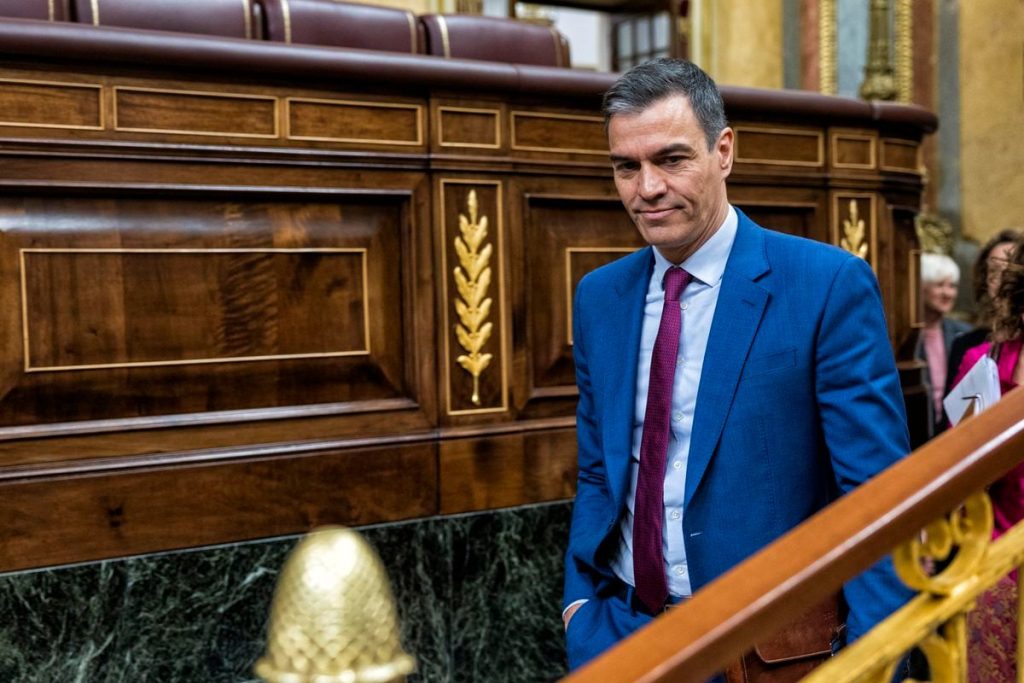Pedro Sánchez arrived at the session in Congress earlier than usual and seemed eager to finish quickly, possibly due to the news of judicial proceedings against his wife, Begoña Gómez, for alleged influence trafficking. Despite tensions between the Socialist government and the Popular Party, both sides avoided direct references to each other’s personal issues during the parliamentary session. Sánchez implicitly addressed the issue during a verbal exchange with ERC spokesperson Gabriel Rufián, affirming his belief in the justice system despite recent attacks on his personal life.
Both Sánchez and PP leader Alberto Núñez Feijóo seemed to have a tacit agreement not to mention each other’s personal matters during the parliamentary exchange. While Feijóo focused on the rise of EH Bildu in the Basque elections, Santiago Abascal of Vox reiterated his party’s call for mass deportations of illegal immigrants. The opposition continued to criticize the government’s alliances with certain political parties, such as EH Bildu, while Sánchez defended his partnerships as necessary for governing in the interest of the majority.
The Catalan campaign was also a topic of discussion in the parliamentary session, with Junts and other parties criticizing the government’s handling of Catalan finances. The Minister of Defense, Margarita Robles, defended the military budget as an investment rather than an expense, highlighting her confidence as the most highly rated minister in the Cabinet. Some Socialists partners expressed discomfort over the recent approval of a €1.1 billion military budget, indicating divisions within the government coalition.
Despite ongoing tensions and personal attacks between political parties, the government and opposition seemed to have a temporary truce during this parliamentary session. While unresolved issues and disagreements persist, both sides opted to focus on policy matters rather than personal scandals. The political landscape in Spain remains complex, with various parties jockeying for power and influence ahead of regional and national elections. Sánchez and his government face ongoing challenges both domestically and internationally, requiring diplomatic finesse and strategic decision-making to navigate the evolving political landscape.


